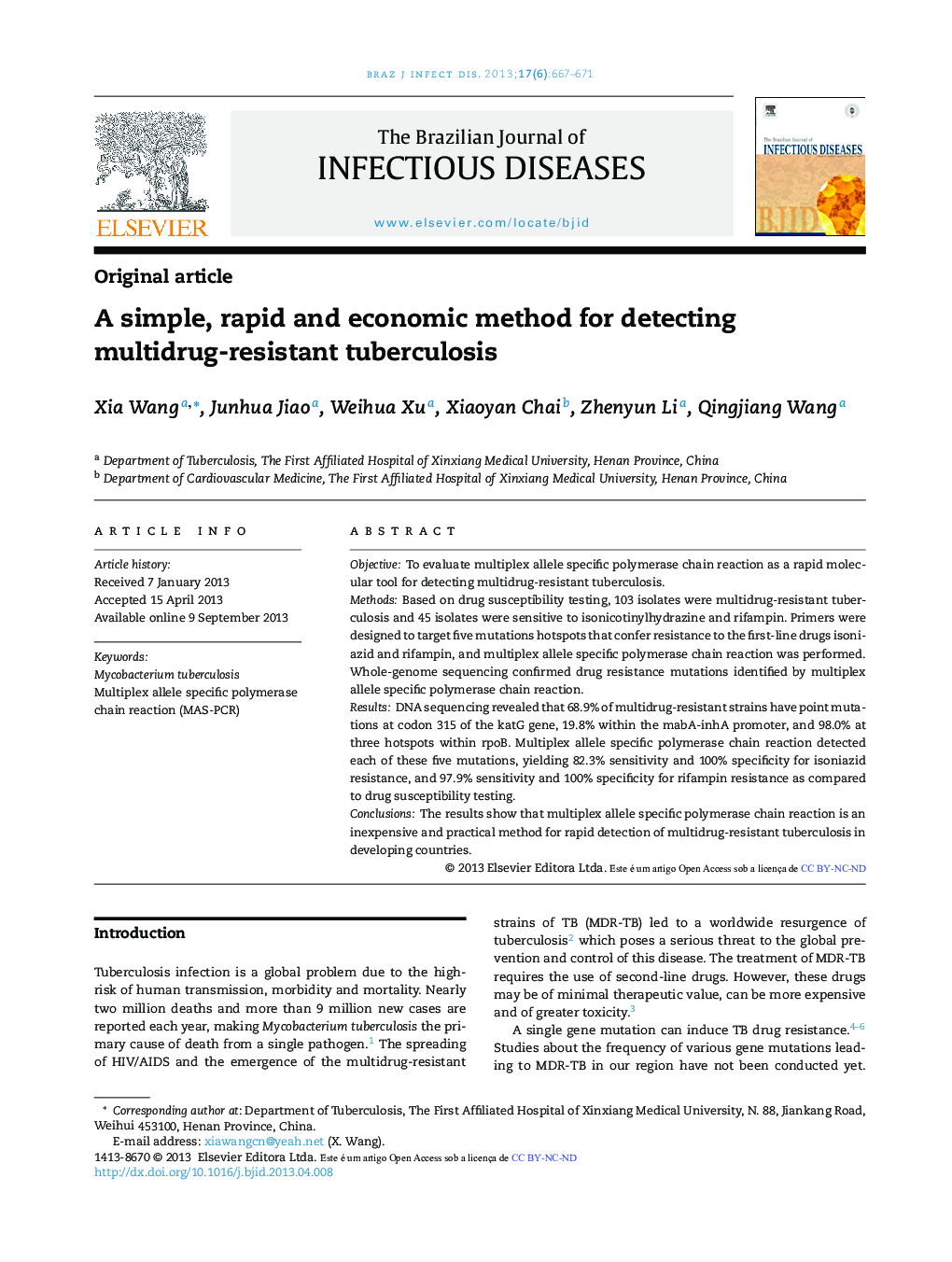| Article ID | Journal | Published Year | Pages | File Type |
|---|---|---|---|---|
| 3343928 | The Brazilian Journal of Infectious Diseases | 2013 | 5 Pages |
ObjectiveTo evaluate multiplex allele specific polymerase chain reaction as a rapid molecular tool for detecting multidrug-resistant tuberculosis.MethodsBased on drug susceptibility testing, 103 isolates were multidrug-resistant tuberculosis and 45 isolates were sensitive to isonicotinylhydrazine and rifampin. Primers were designed to target five mutations hotspots that confer resistance to the first-line drugs isoniazid and rifampin, and multiplex allele specific polymerase chain reaction was performed. Whole-genome sequencing confirmed drug resistance mutations identified by multiplex allele specific polymerase chain reaction.ResultsDNA sequencing revealed that 68.9% of multidrug-resistant strains have point mutations at codon 315 of the katG gene, 19.8% within the mabA-inhA promoter, and 98.0% at three hotspots within rpoB. Multiplex allele specific polymerase chain reaction detected each of these five mutations, yielding 82.3% sensitivity and 100% specificity for isoniazid resistance, and 97.9% sensitivity and 100% specificity for rifampin resistance as compared to drug susceptibility testing.ConclusionsThe results show that multiplex allele specific polymerase chain reaction is an inexpensive and practical method for rapid detection of multidrug-resistant tuberculosis in developing countries.
